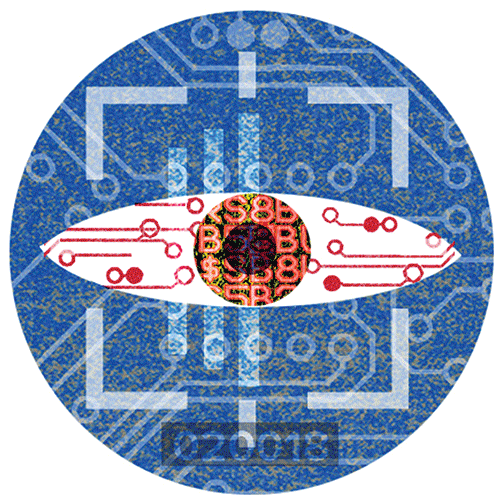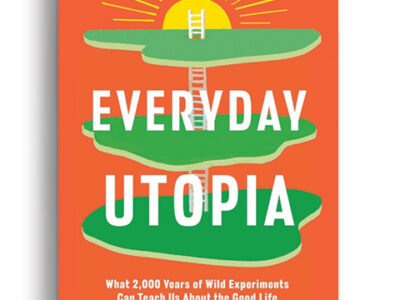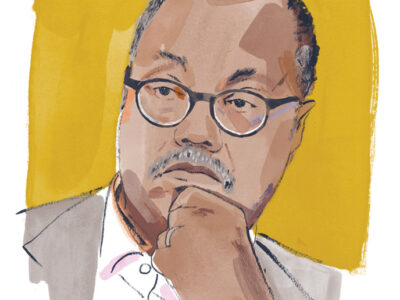
Why data autonomy is a human rights issue.
“Sooner or later, instead of pulling out your ID when you go to an airport or when you go into an office building, everything will be done with retinal scans.” So said Zeid Ra’ad Al Hussein, the former United Nations High Commissioner for Human Rights, this September at the Perry World House, where he is currently the Professor of Practice of Law and Human Rights. Without observing that this practice has in fact already been implemented at some airports, Al Hussein followed his train of thought into slightly more speculative territory. “When you go to the supermarket, you will pay with a retinal scan. You won’t need any ID,” he mused, building towards the question that keeps him up at night: “Well, if the government decides to delete the file, what happens to you then?
“It effectively renders you dead,” he answered. “You’re still a living organism, but for all intents and purposes, you are gone.”
“As we become more dependent on this technology, the dangers posed to all of us are enormous,” Al Hussein declared, referencing not just retinal scans but the wider foundation of contemporary digital life. “Civilization is being underpinned almost through artificial means. How far are we going to go with that? We are just thinking about short-term convenience—we’re all dependent upon it, all of us. But we have so much staked on it, that if it’s taken away from us through some cyber exchange, we are back to square one again.”
The Perry World House’s third annual fall colloquium, titled “How Emerging Technologies are Rewiring the Global Order,” featured several big-name guests—including former US Secretary of State John Kerry and former US Secretary of Defense Ash Carter—but a conversation between Al Hussein and Human Rights Watch executive director Kenneth Roth was especially illuminating, and sobering. Informed by his own experience dealing with human rights abuses and recalcitrant governments, Al Hussein urged everyone who uses digital tools to be careful—and called for everyone who designs them to wake up to the possible ramifications. Here’s a snippet of his remarks, slightly edited for length and clarity.
Each individual basically has to come to terms with how much of their data they want to give up. If you live in a society where you believe there is rule of law—where you believe there is recourse to legal remedy and if you needed to go to court you would at least be given a fair hearing—then you might decide to surrender more of your information for the sake of the modern life that in one way we all inhabit. But if the backdrop is one of growing repression throughout many parts of the world—where there is no room for dissent in some countries and in others it’s disintegrating—then you’d expect that people would be more cautious about how much they’ve given up. Yet in some countries they’ve already given it all. For instance, in a number of African countries, your whole life is now on your cell phone: you bank on it, you pay your bills on it. I’m not sure they know where all that data goes. Some data probably goes to general intelligence. The metadata goes through the telecom company. And if you have 5G in Africa, it all ends up with Chinese authorities…
You can quite easily construct a scenario similar to the Second World War, where let’s say you had a kinetic war between the US and China over something: Hong Kong expands, or something happens in the South China Sea. Then you would have a growing cyber war—which exists already at a lower temperature—between the US and China. In such an effort, could you not see emergency powers being rushed through Congress, mandating that the major platforms have to cooperate now with the war effort in the United States? And that anyone who has any association with China, any Sino-American who has traveled to China recently, will have to make [digital] records available to the US government?
In normal times you can construct some sort of set of protections—but often you just need a crisis for those protections to disintegrate very quickly. And then after the end of the conflict we might have all the remorse over the mistreatment of people—as happened with the Japanese Americans interred in camps during the Second World War. But all those permutations of past experience can be worked through, and you ultimately have to decide: Do you trust the government? And if you don’t trust it, then you need to be careful. The government needs to convince you that you can trust the government, and the separation of powers, and that courts work for the benefit of all people—and if so, then you can make a decision that you’re going to give up more and more of your autonomy. But ultimately, without knowing where the road ends, you’re gambling, I think. That’s why we need the engineers—we need the people who are devising all of this—to be working with ethicists, and historians, and social scientists, and human rights groups. —TP




